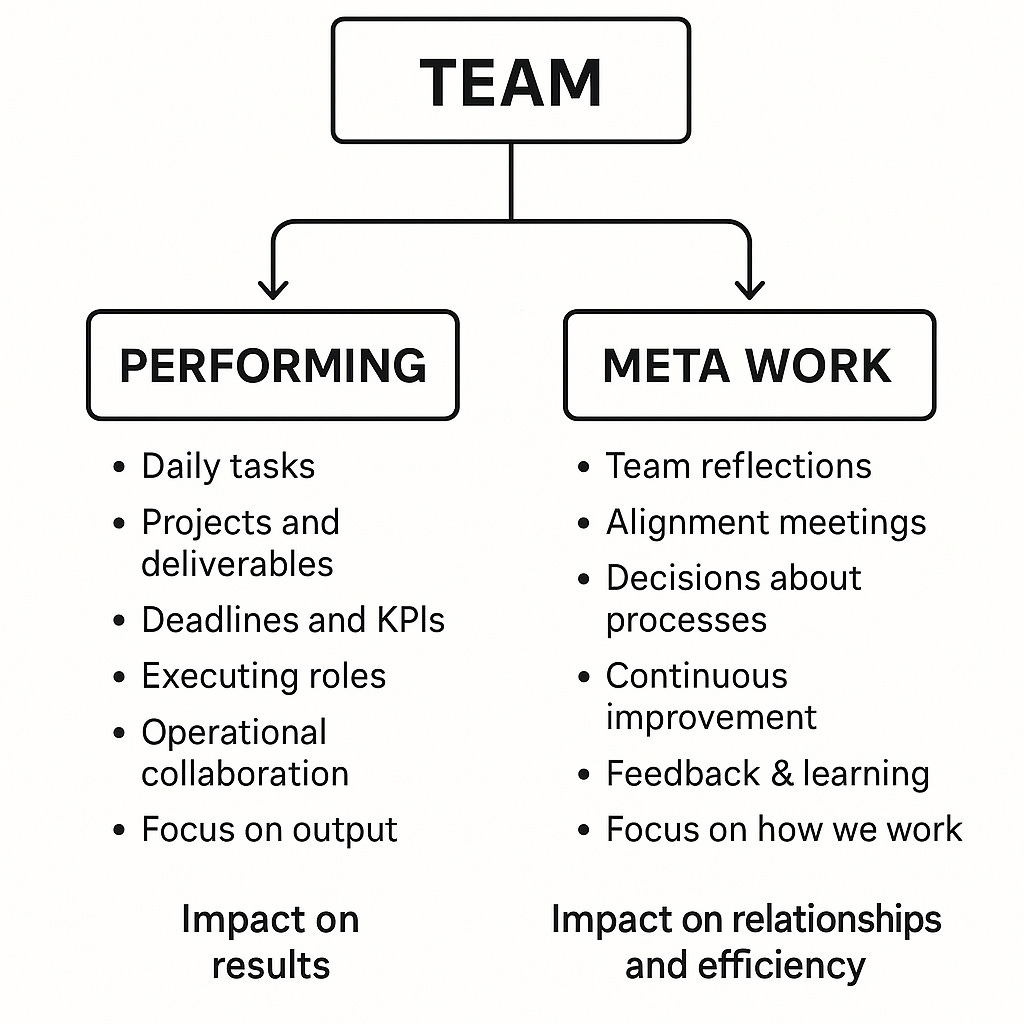Great teams don’t just work hard.
They pause, zoom out, and rebuild the game.
Let’s be honest.
Most of us already know this:
❗ When tension or conflict appears — it's not the best moment to find sustainable solutions.
Still… we wait.
We wait until the fire.
Then we rush to fix it.
Why?
Because we don’t prioritize the moments between the fires.
We don’t create space to reflect, learn, realign, and redesign the system we work in.
So here I am.
Not insisting for others.
But because this topic moves me deeply.
📌 The blind spot
Here’s the thing:
Most teams I meet don’t have time to stop and zoom out.
Or if they do… they don’t know what to do with that space.
What should we be doing when we step outside the arena?
Reflecting
Learning
Making conscious decisions about how we function
Realigning and adjusting our implicit contracts
Designing new structures that serve us — instead of us serving outdated structures
📌 Why it matters
When we suffer, we protect.
Protection = reflexes.
Reflexes ≠ innovation.
Innovation and reflexes live on opposite ends of the spectrum.
So no — it’s not that fires block innovation.
It’s that...
🔴 If you don’t create space for innovation, you’ll stay stuck in fire-fighting.
And ironically — even firefighters don’t wait for the fire to train.
They drill, reflect, and update protocols constantly —
so when the flames come, they can respond with clarity, not panic.
📌 A better way
Your team needs two invisible red threads:
🔴 One for performing — doing, moving, executing
🔴 One for meta-work — not doing the work, but working on how we work: pausing, realigning, evolving how we play. It’s the system view — seeing the patterns, not just the tasks.
Without the first, nothing gets built.
Without the second, we repeat the same patterns in fancier packaging.
📌 In business and in life
At work, this means creating two kinds of meetings:
✔ Operational
✔ System-improvement
In your personal life, it means carving out intentional spaces for reflection and redesign — not just spontaneous thoughts in the shower.
This looks like:
Regular coaching or journaling moments
Purposeful conversations with your partner — not just about what happened, but about how you both want to function
Friendships where growth is mutual and patterns are open to challenge
Asking:
— What still works for me?
— What no longer serves me?
— Who have I become?
— What needs to evolve in how I relate, live, and decide?
📌 The mystery
Why am I obsessed with this?
Because it challenges me.
Because I see people running on autopilot, even though they know they should pause.
And I suspect that even if they did pause, they wouldn’t know where to start.
Systemic decision-making is still an underdeveloped skill —
but one that we deeply need in today’s complex world.
That’s why I believe in coaching — both individual and team.
📌 Your turn
What’s your theory?
Why don’t people step outside the arena more often?
And if you’re ready to pause, zoom out, and redesign the way you lead —
I’d love to support you., whether it’s your own path or your team’s dynamic.
Let’s hold that mirror together.
Clarity, alignment and new decisions start there.


